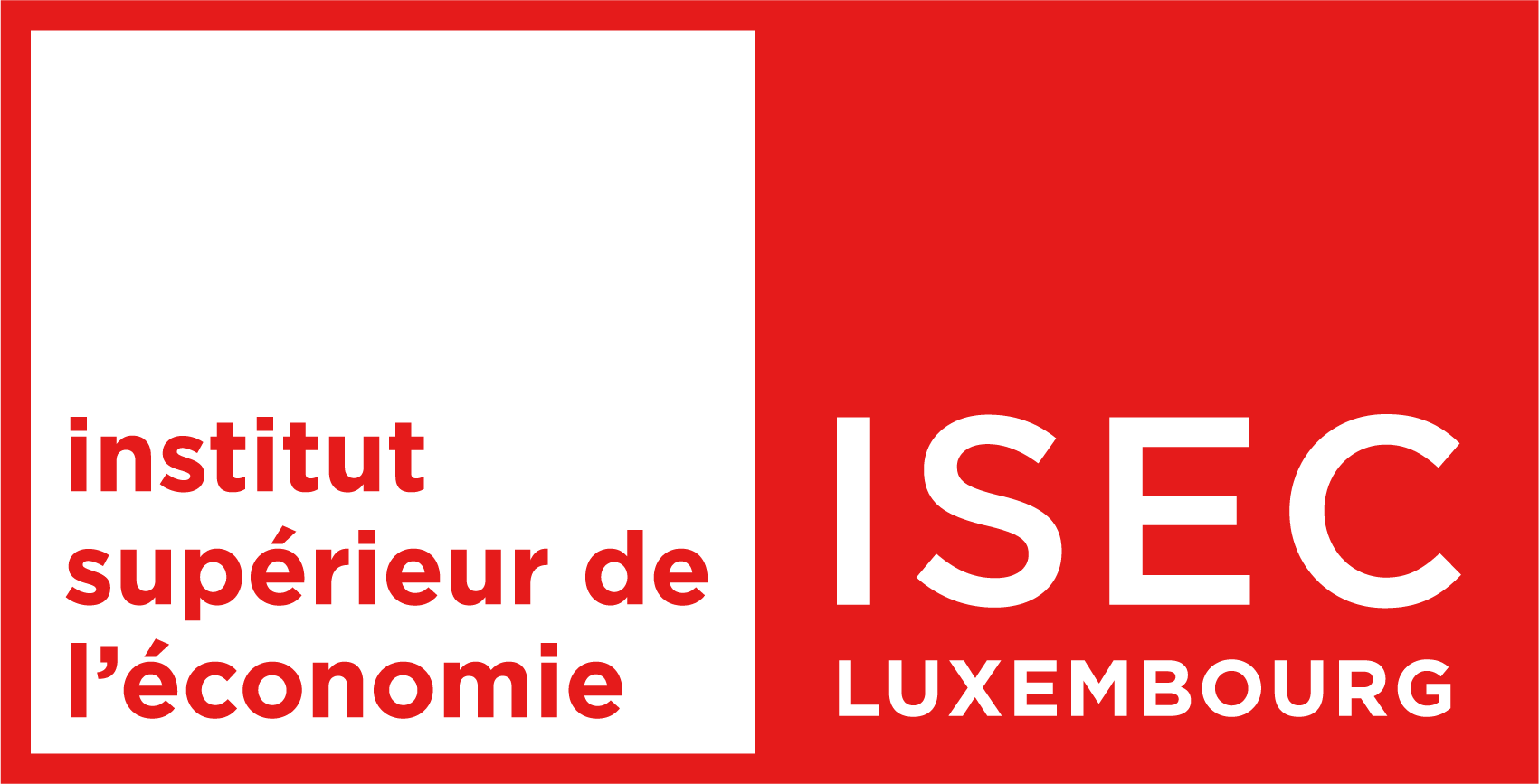Master course
Master of Business Administration (MBA)

Small country - big business: Luxembourg has a highly dynamic and exceptionally international economy.
The country already exports over 85% of its production. There is consequently a high level of demand for managers with international management skills - leaders who, with their knowledge of the complexity of global markets, make sound, forward-looking entrepreneurial decisions, can responsibly manage multicultural teams and successfully represent the interests of their company in an international environment. The Master degree course in Business Administration teaches you these skills. Graduates are distinguished by their entrepreneurial 360°-view, their business-minded and assertive personalities and their comprehensive business knowledge.
We are at your disposal
For further information on the study programme or the registration procedure, please contact:
Antje Weber
(+352) 46 50 16 900
Information sessions
Where: Chamber of Commerce Luxembourg
About
The MBA programme was especially developed for professionals with a Bachelor degree in a non-economical field who wish to supplement their specialist knowledge with a generalist business expertise. In addition to offering a thorough understanding of applied economics, the MBA also focuses on the development of leadership qualities such as motivational and communication skills. In this four-semester programme, you will take an in-depth look at issues relating to strategic management and sharpen your understanding of the different operative areas such as finance, law, human resources and marketing as well as international relations.
Upon successful completion of the course, you will be awarded with the degree 'Master of Business Administration' by the FOM Hochschule fuer Oekonomie & Management. The FOM is system-accredited by the Foundation for International Business Administration Accreditation (FIBAA), therefore this study programme is also accredited.
1st Semester
Economics
- Supply and demand
- Costs and revenues
- Theory of the firm
- Factor markets
- Market failure
- Unemployment and inflation
- Money and monetary policy
- Policy approaches
- International trade
Marketing & Communication
- The role of marketing
- Market analysis
- Company Analysis
- SWOT Analysis
- Marketing objectives
- Marketing mix
- Communication: Internal, External, Digital, International
HR & Leadership Competencies
- General Framework of Human Resource Management
- Corporate Culture
- Leadership in teams
- Motivation Theory
Financial Management
- Objectives in financial management
- Stakeholder vs. Shareholder Management
- Ethical aspects in financial management and corporate governance
- Financial planning
- Investment
- Cash management
2nd Semester
Strategic Corporate Management
- Strategic analysis
- Theoretic approaches
- Strategy Formulation
- Choices and implementation
- Different strategic contexts
International Business Law
- Main features of the Luxembourgish legal system and embedment in European and International law
- Basics of contract law (including European and international references)
- Basics and current developments of commercial and corporate law
- Industrial property rights - Introduction to the national,
European and international competition, trademark and patent law - Basics of international arbitration proceedings
Management Decision-Making
- Decision-Making Techniques
- Rational and intuitive decision Models
- Information requirements and information management
- Managing risk and uncertainty
Value-based Controlling & International Accounting
- The classification of accounting methods according to IFRS in the national and international normative context
- The goals, objectives and principles of IFRS accounting methods
- The components of IFRS annual financial statements
- General reporting and valuation rules of the IFRS
- Value-orientated controlling and indicator systems
- Possible applications and limitations of value-orientated indicators/systems for performance measurement and management through controlling
3rd Semester
Research Methods
- Organisation and management research
- Research strategy and design
- Questionnaire and survey design and sampling techniques
- Analysis of quantitative data
- Dilemmas of research Choice
International Investment
- Theoretical foundation of asset management
- Information content of derivatives and instruments
- Corporate diversification and hedging
- Net present value vs real options
- Planning of earnings, investments and finance
- Analysis of earnings, cash flows and assets/liabilities
- Finance and investment decisions (e.g. Private Equity, M&A)
- Shareholder value management
SPECIALIZATION: INTERNATIONAL MANAGEMENT (1)
International Strategy and Sales Management
- Sales Goals
- Structure
- Organisation, Personal and Team Selling (negotiation
skills) - Selection and Management of Distribution
International Entrepreneurship & Innovation
- Business Plan
- International Business Activities
- Structuring and developing a Innovation Management Process
- Structuring and developing a (Digital)
Business Model and (Digital) Value Chain
4th Semester
Master Thesis
Colloquium
(1) SPECIALIZATION:
As an alternative to the "International Management" specialization in the 3rd semester, you can choose one of four one-week block courses as an area for specialiszation:
Process & Digital Change (Cologne)
Project & Contract (Hamburg)
Management Consulting (Dusseldorf)
Start-Up Entrepreneurship (Berlin & Munich)
Marketing & Sales (San Diego/USA)
International Finance & Asset Management (Boulogne-sur-Mer/France)
For areas of specialisation abroad there are additional costs.
Specialisation block courses can only be held if a minimum number of
participants is registered.
Subject to change

I am currently pursuing a master’s degree at the ISEC after having finished my Bachelor degree. The ISEC MBA is the most challenging academic effort I have to accomplish but also the most rewarding as it enables me to get a much deeper understanding of how to contribute to a company‘s success. The skills and experiences we acquire throughout the programme will give us – students - the right mind set and confidence to face any challenge we might encounter in the future. Most importantly, I have added life-long friends. Pursuing the MBA at the ISEC is the best option for professionals who wish to continue their academic education while keeping their daytime job.
Diana Pereira Dias
Real estate agent at CASAvitae SARL
At a glance
Requirements:
-
school leaving certificate
-
University degree, e.g. Bachelor, worth 210 ECTS (applicants with a university degree worth 180 ECTS may be admitted to a course after appropriate professional experience or other university achievements are recognised)
-
at least one year of professional experience following your first degree
-
current employment
-
English level B2 or higher (CEFR)
Workload: 90 credit points (ECTS)
Duration: 4 semesters
Semester Break: September and Christmas
Tuition Fees: enrolment fee: €1,600
course fee: €12,480 (possibility to pay in 24 monthly instalments of €520)
examination fee: €750 (payable at the end of the studies)
The tuition fees may under certain circumstances be tax deductible. Contact your accountant or tax office for more information.
Schedules: Classes in the evening and on Saturday
Further information: Partial recognition of course modules and/or admission to postgraduate programmes can be requested in accordance with the VAE (validation des acquis de l‘expérience, acknowledgement of prior learning).
Subject to change
